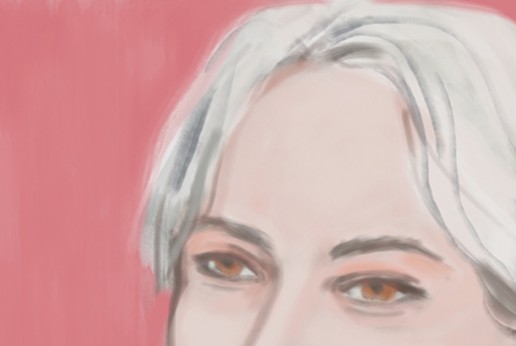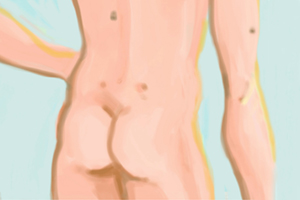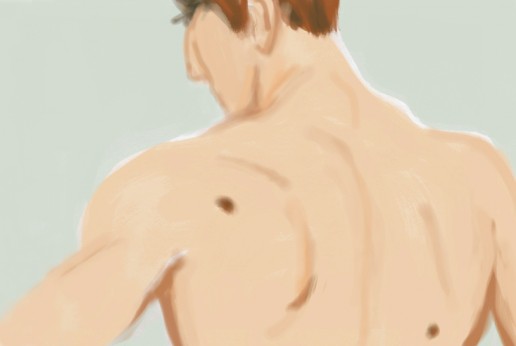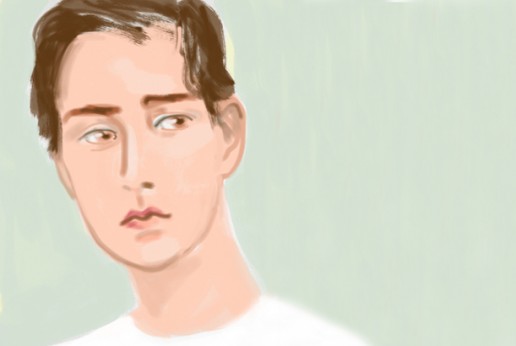Allergy/Allergology
RELIEF FOR
YOUR ALLERGY
Treatment of skin allergies, itchy eyes and hay fever
The number of allergy sufferers is continuously growing. We say that an allergy occurs when the immune system overreacts to common substances in our environment.
In the meantime, already 15 percent of the population suffer from hay fever or skin allergies and seek relief from the unpleasant symptoms.
People with respiratory allergies suffer from itchy eyes, a runny nose, blocked nasal passages and sometimes even shortness of breath and asthma. Inhalable allergens are pollen particles, house dust mites or even mould spores, to mention just some.
Those with food allergies suffer from unpleasant sensations in the mouth and throat or even gastro-intestinal symptoms. Allergens here include, for instance, fruits or types of flour.
People with skin allergies develop eczema and itching on those skin areas that have come into contact with substances that they are unable to tolerate. Consequently they are also referred to as contact allergies. The most common type is an intolerance to nickel in fashion jewellery or skin eczemas caused by cosmetics.
Diagnosing allergies
Only when the allergens that trigger reactions are identified, can contact with them be avoided. That is why targeted allergy testing is so important. Sometimes it even requires investigations similar to detective work.
Testing for respiratory and food allergies is done with a prick test. This entails application of allergen solutions on the surface of the skin – usually the lower arm – and then introduced to the skin by scratching to provoke a response. The results are visible after only 20 minutes. Redness and the formation of welts indicate that an allergic reaction to the test solution has occurred. This is a so-called Type 1 allergy.
The search for contact allergies (Type 4 allergy) is done with so-called epicutaneous testing. Allergic contact reactions are usually delayed and typically occur after a period of several days. That is why this type of test is conducted over a several-day period: the allergens to be tested are usually applied at the beginning of the week by sticking a patch on the patient’s back. Test result readings are done in our office after 24 hours and 72 hours. Redness and swelling underneath the patch are indications of contact allergies.
Allergy therapy
Allergy symptoms are initially treated with remedies like eye drops, nose sprays, oral antihistamines, salves, etc. In order to prevent recurring symptoms, the allergy sufferer must also consistently avoid the substance that triggers the allergic reaction – the so-called allergen – in the future, as well.
If it is not possible to ensure avoidance of an allergen like pollen, house dust or insect poisons, and if the allergy sufferer has already experienced severe symptoms, it is necessary to undergo a specific immune therapy, also known as hyposensitisation or desensitisation therapy.
An allergic reaction is an overreaction of our immune system. The active principle behind hyposensitisation is to slowly become accustomed to the allergen by administering gradually increasing amounts of the allergen. This is done either in the form of injections in the skin (in our office) or by administering the allergens orally in the form of drops or pills, which the patient can do at home. Injections are usually given in monthly intervals. After receiving an injection, the patient must stay in our office for 30 minutes to enable immediate treatment in the case of a severe reaction to the therapy.
Hyposensitisation usually helps relieve allergic symptoms within just a few weeks, but must be repeated over a period of 3-5 years to achieve an effect that is permanent, in some cases even lifelong.
Proctology
Proctology
Treatment of hemorrhoids, infections (viral, bacterial, fungal), fistulas, anal carcinomas and HPV infections
The fact that more than half the population suffers from rectal problems is widely taboo. Out of shame, those affected frequently try to ignore the symptoms or relieve them with self-therapy. Proctology deals with the symptoms and diseases of the rectum and anal region. For example, we treat hemorrhoids; anal eczema, fistulas and carcinomas; viral, bacterial, fungal and HPV infections; and sexually transmitted diseases.
Don’t hesitate to speak to us about your problems promptly and frankly. We provide early diagnosis, targeted therapy and consult you on colonoscopy examinations.
With our competent and specialised treatment, you will no longer need to silently suffer through your symptoms. It’s time to start life anew – without this discomforting condition.
Photodynamic Therapy (PDT)
PHOTODYNAMIC
THERAPY (PDT)
Treatment of preliminary stages of skin cancer
Photodynamic Therapy (PDT) is an innovative method, which enables the early detection and treatment of skin cancer before the formation of metastases. Photodynamic therapy is an highly effective method of scar-free treatment of pre-cancers (so-called actinic keratoses), tumours and superficial basal cell carcinomas (also known as basaliomas). It is generally a two-step process: A medication is applied to the changed skin area in the form of cream, gel or patch, whose active ingredients penetrate the cancerously affected skin cells within a few hours. Subsequently, the substance is activated in the practice using a special light source, consequently killing the malignant cells and promoting the formation of healthy cells in their place.
The specialists at Dermatologie des Westens have more than one decade experience in the application of photodynamic therapy. The Dermatologie des Westens Training Centre for PDT, founded in 2013, provides training in this procedure for medical specialists.
Photodynamic treatment is not compensated by statutory health insurance policies. Private health insurance providers generally reimburse the treatment costs.
For more information: www.biofrontera.com
Skin cancer
SCREENING FOR SKIN CANCER AND
SKIN CANCER TREATMENT
Early detection is crucial!
The organ that is most frequently afflicted with tumours is our skin. Tumour diseases of the skin are on the rise. Ultraviolet light is thereby the most significant contributing factor for the development of malignant tumours, white and black skin cancer. Today, increased exposure to the sun begins early with childhood leisure activities. Early detection of skin tumours can save lives.
What we offer you:
Screening for skin cancer with incidence light microscopy: This is a particularly thorough examination of the entire skin organ from head to toe. This naturally includes the analysis of all pigmented lesions using incidence light microscopy.
Complete check with incidence light microscopy and videography: In addition to our screening for skin cancer, this also includes photographing and examining conspicuous moles and skin changes with computer-aided microscopy (FotoFinder®). This procedure offers optimal diagnostic security in the progressive evaluation of pigmented skin changes and moles. Even the smallest changes can be identified. Skin cancer and its pre-stages are detected at the earliest possible moment.
- Electronic data storage enables a detailed comparison to previous findings for examinations at a later date.
- Even minimal optical changes of moles are easy to detect and can be reliably evaluated by the dermatologist.
- Video documentation reliably prevents the unnecessary removal of moles.
We recommend a complete annual check to everyone of 18 years of age and up, especially those with moles and pigmented lesions.
At Dermatologie des Westens, preventive medical screenings are invoiced as private medical treatments. These costs are unable to be reimbursed by statutory health insurance policies. Private health insurance plans generally reimburse the costs in full.
An overview of the costs:
Screening for skin cancer with incidence light microscopy: ca. € 48.00
Complete check with incidence light microscopy and videography: ca. € 80.00 to € 100.00
The fee for medical services is individually calculated according to the current fee scale for medical practitioners in Germany (GOÄ) and depends on the specific services rendered.
Skin surgery
Skin surgery
Modern surgical centre
In addition to the traditional treatment of skin disorders and allergies as well as aesthetic dermatology, we also perform surgical procedures like the treatment of white skin cancer (basal cell carcinoma), the removal of malignant tumours, non-malignant growths or moles. We perform dermatological procedures according to the latest medical and technical findings in our certified Surgery Centre. For most procedures, only a local anaesthetic is required. In cooperation with a team of anaesthesiologists, operations can also be performed under administration of general anaesthesia.
We cooperate with the best addresses in the city for all your surgical lifting needs.
Treatment with laser
Laser therapy can deliver phenomenal results for treating skin cancer. The application of laser therapy in medical dermatology is used to treat:
- benign skin tumours (i.e. age warts, fibromas or warts) pre-stages and early stages of malignant tumours (e.g. actinic keratoses)
- malignant skin tumours
- non-malignant skin changes like acne scars or warts
At DERMATOLOGIE des WESTENS various different state-of-the-art laser systems are used to treat skin diseases as well as, and particularly, for aesthetic medical procedures.
This includes performing the following treatments:
- treatment of couperosis (visible facial thread veins)
- removal of virus warts and condylomas (genital warts)
- treatments of acne and other scars
- reduction of annoying facial redness
- sclerotherapy of senile angiomas and hemangiomas
- removal of thickened scars, annoying fibromas and other raised skin changes
- permanent hair removal (laser epilation)
- tattoo removal
- elimination of age spots and age warts
- skin rejuvenation, wrinkle treatment (fractionated laser therapy)
- reduction of wrinkles
We provide therapies with the following range of lasers:
- Erbium: YAG laser (Alma laser Burane)
- CO2 laser (Intros)
- Fraxel laser/CO2 fraxel laser (MX 7000)
- Alexandrit laser (Alma laser Arion I)
- Q-switched Nd: YAG/KTP laser (Intros laser)
- Diode laser (Intros Lina-3 D Derma)
- KTP laser (MedArt 470)
At DERMATOLOGIE des WESTENS all laser treatments are carried out by and under the supervision of experienced specialists.
Learn more about the use of our highly effective laser applications here.
Acne
ACNE, PIMPLES,
BLEMISHED SKIN?
Treatment with anti-pimple cream, peeling and microneedling
You’ll receive the best possible care at Dermatologie des Westens. Our experienced specialists have years of practice in innovative acne therapy, a key focus of their work.
Our specially trained and equally highly experienced medical cosmeticians will attend to your needs with innovative treatments. You can expect therapies that include state-of-the-art peeling methods, microneedling treatments and which naturally also provide you with additional competent advice for care to support this therapy at home. We work exclusively with products from Comfortzone, Aesthetico© and Skinceuticals©.
Remarkable results can be achieved even for pronounced acne scars, using the ultra-modern fractional CO2 laser.
The specialised medical treatment is a holistic approach that is performed according to innovative principles. The search for causes that respond to treatment, such as hormonal imbalance, are as much a part oft the treatments as are the potential therapies with medications in the form of either creams or pills.
Most of the treatments are not covered by statutory health insurance. For your optimal treatment plan, please plan to be invoiced for the additional costs that these insurance policies do not cover.
Our philosophy: There is a treatment for every type of acne!





